Meaningful Multiplayer
date
Jan 1, 2024
type
Post
year
slug
boardgames-meaningful-multiplayer
status
Published
tags
Boardgames
Game Design
Multiplayer
summary
What makes a boardgame a meaningful multiplayer experience?
What does a boardgame require to make it a meaningful multiplayer experience?
What does it take for your players to actually play against or with each other and not just next to each other? Let’s take a look at some examples…
Versus
Cascadia
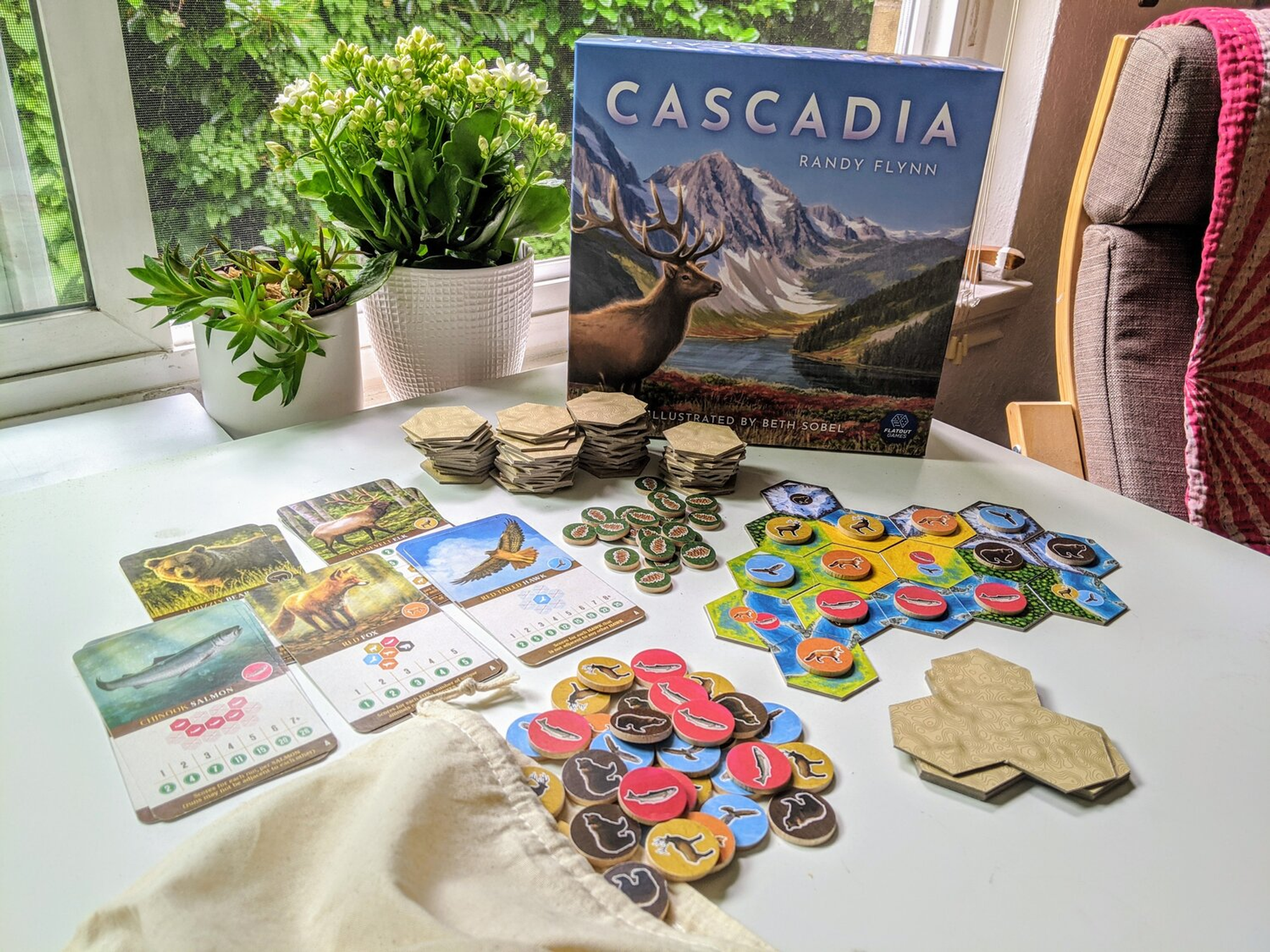
Each player builds their own little island out of hexagonal landscape tiles, each tile can house one animal token. Players try to arrange their tiles and animals in certain patterns so as to get the maximum score according to the score cards that define what patterns get what score for each type of animal (for example: a fox gets points for how many different types of animals surround it, while a salmon scores you points if it is connected to other salmons in a chain).
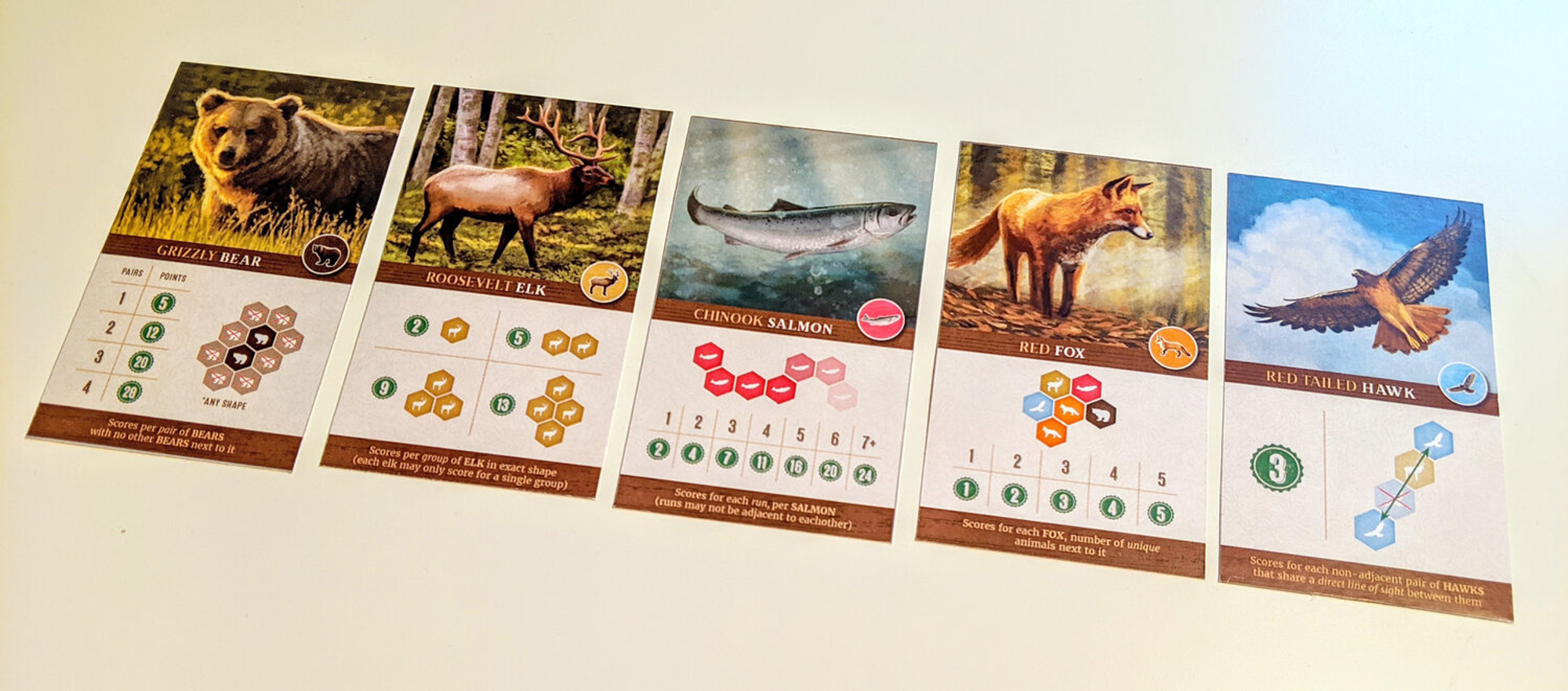
On your turn you can choose a set of 1 tile and 1 animal token from a supply of 4 sets, that gets restocked randomly after you’re done.
So the only way to interact with other players is to look at their island of tiles and take the one thing you think they want the most - or leave that thing for them if you’re nice. In any case: that’s not a lot of interaction. There’s not a lot you can do with or against other players. You might just as well be playing alone. You’re not playing with other people, you’re playing the same game next to other people and once you’re all done you compare your scores.
Azul


In Azul it’s a similar story, but with more options to mess with other players, and it’s a better multiplayer game for it. Each player has their own board to fill with tiles, but the tile-choosing mechanic is better and there’s more urgency because leftover tiles that you can’t use hurt your score. Now there’s a meaningful way to get ahead by taking something another player would need and leaving them with something they can’t use. You’re still playing the same solo-game next to other people, but now you’re fighting for the pieces you need.
Carcassonne
Carcassonne has square tiles depicting landscapes with roads, cities, meadows and cloisters.
All players are building one world together (you can only place a tile so it matches up with another tile that’s already on the table) and each player has meeples to strategically place on roads, in cities and on meadows.
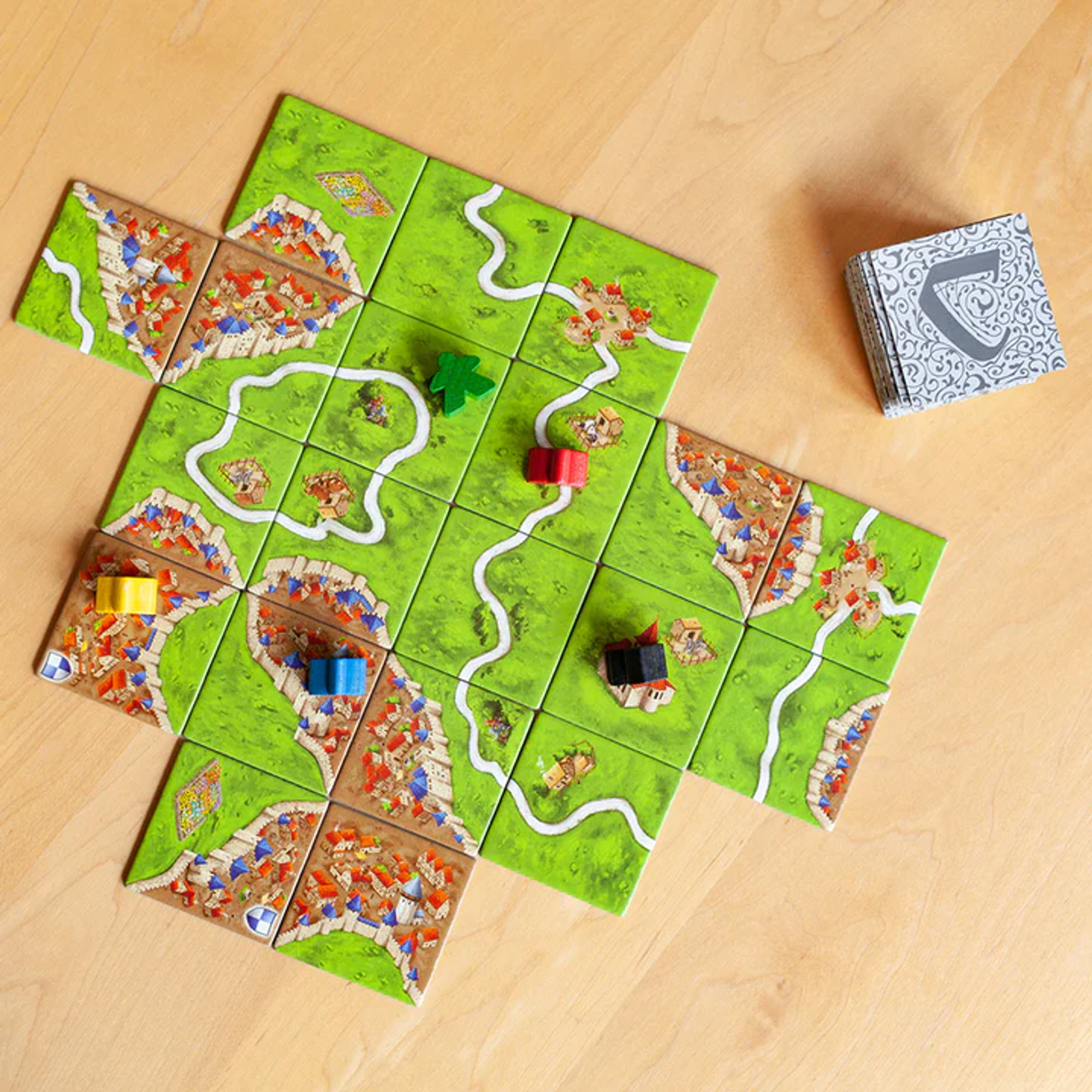

You start a city and place a meeple in it, then expand it to score points depending on the size the city reaches. No one else can place their meeple in your city. But someone else can start their own city and then connect it to yours. In the end only the player who has the most meeples in a city scores. (Both score if it’s a draw)
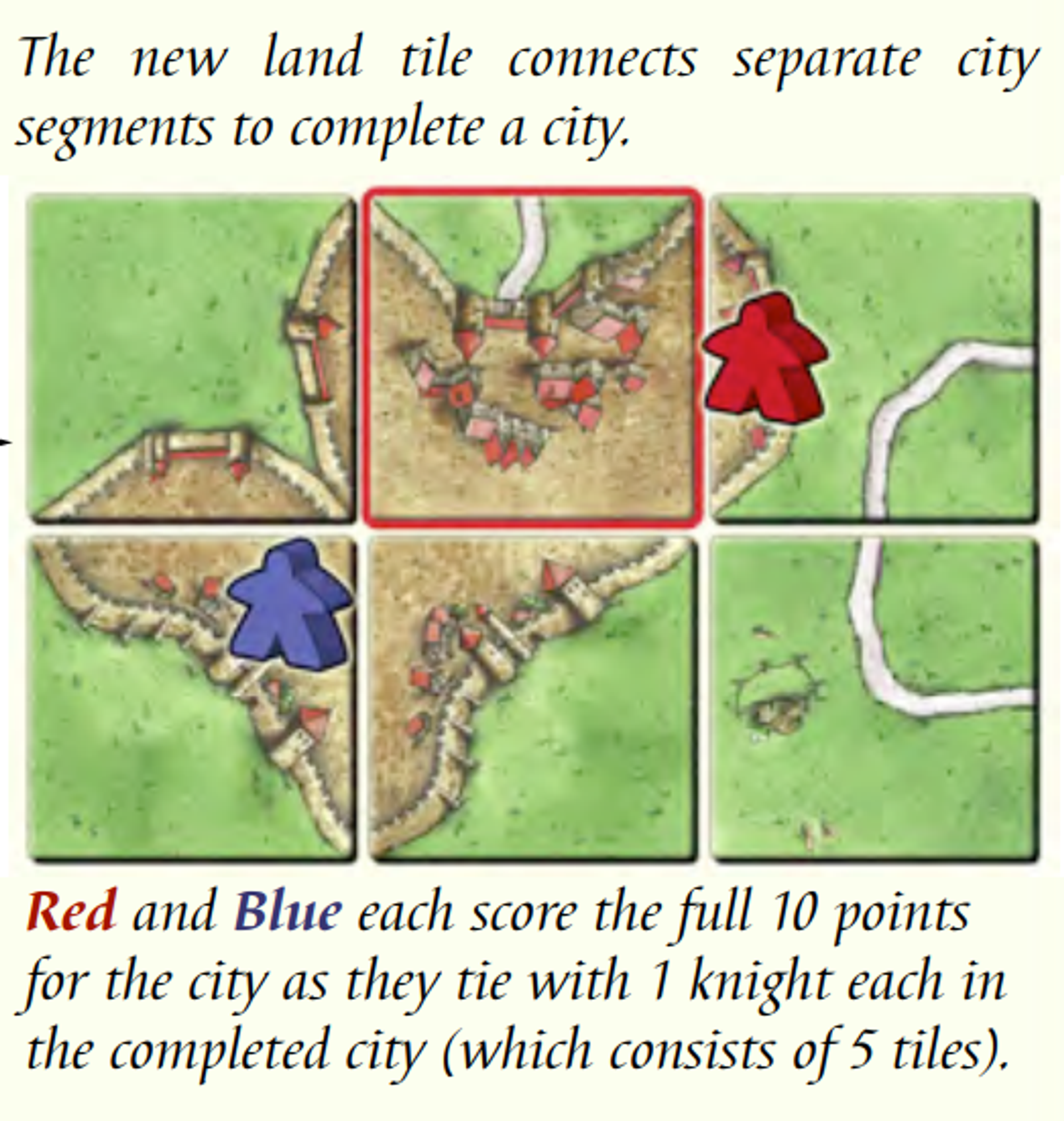
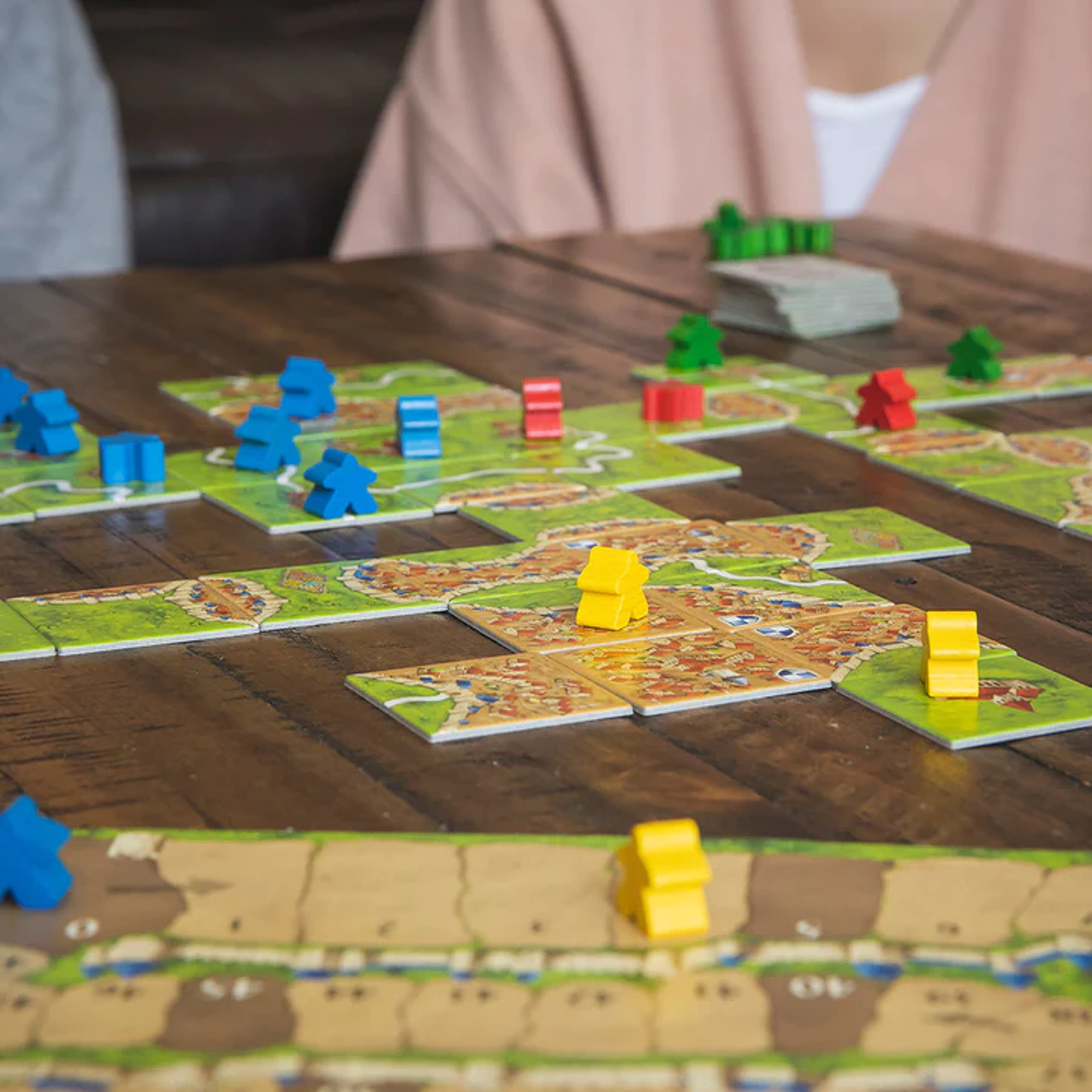
Similar mechanics are in place for meadows and roads.
Here you truly play with and against other players, because their actions directly influence the game board that you’re playing on. Each of their turns has implications for your next turn. The landscape changes drastically and there’s so much opportunity for clever ploys and surprising changes.
And it’s even more obvious in directly adversarial 2-player games like Go or Chess, let’s look at Go as an example.
Go
This game is pure game mechanics. I know no other game where each turn of your opponent has such sting and such dire consequences as in this one. Each of your moves is played directly against your opponent and each of their moves is played directly against you. You have to be on your toes the entire time because each move has the potential to change the entire game. (No other game has ever made it into my dreams and nightmares as much as this one.)
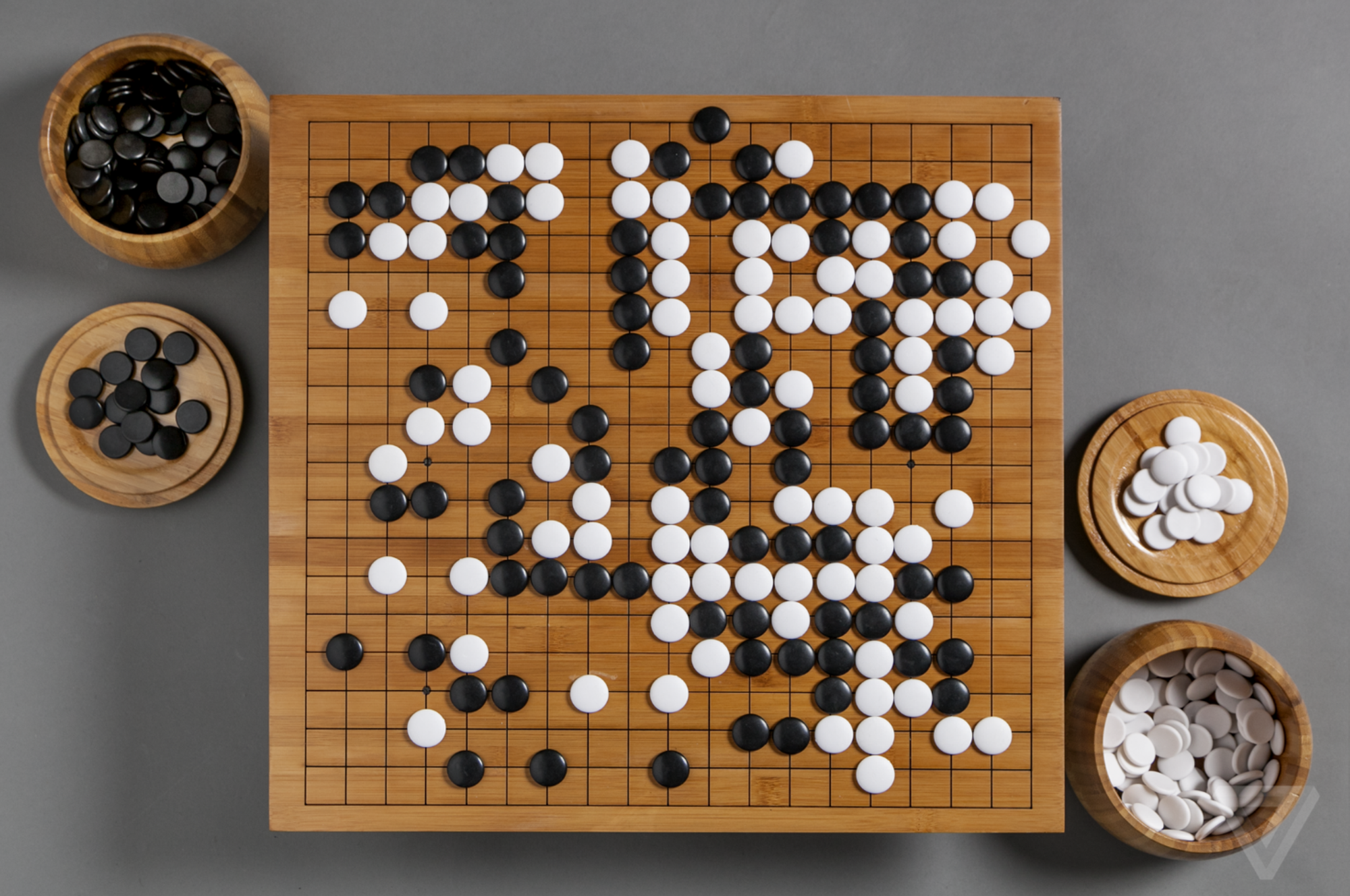
The downside of this is of course that it’s a very intense game that requires skill like almost no other game does. Your choice of opponent changes the game drastically. There is never an obvious next move, so the style and skill of your opponent make a big difference.
Crokinole
Another game where the choice of opponent makes a difference for how the game plays out. But this time it’s more about dexterity. You flick wooden discs from the outermost ring of your quadrant and try to get them to land in a good spot - ideally in the hole in the center or at least in the innermost ring. The tricky bit is that as soon as there’s an opponent’s disc on the board, you need to hit that disc or your disc doesn’t count and gets moved into the ditch. You can’t move the board, you can’t move your chair and you’re not allowed to get up to take a shot. A lot of skill and dexterity is required here. Or sometimes a lot of luck.
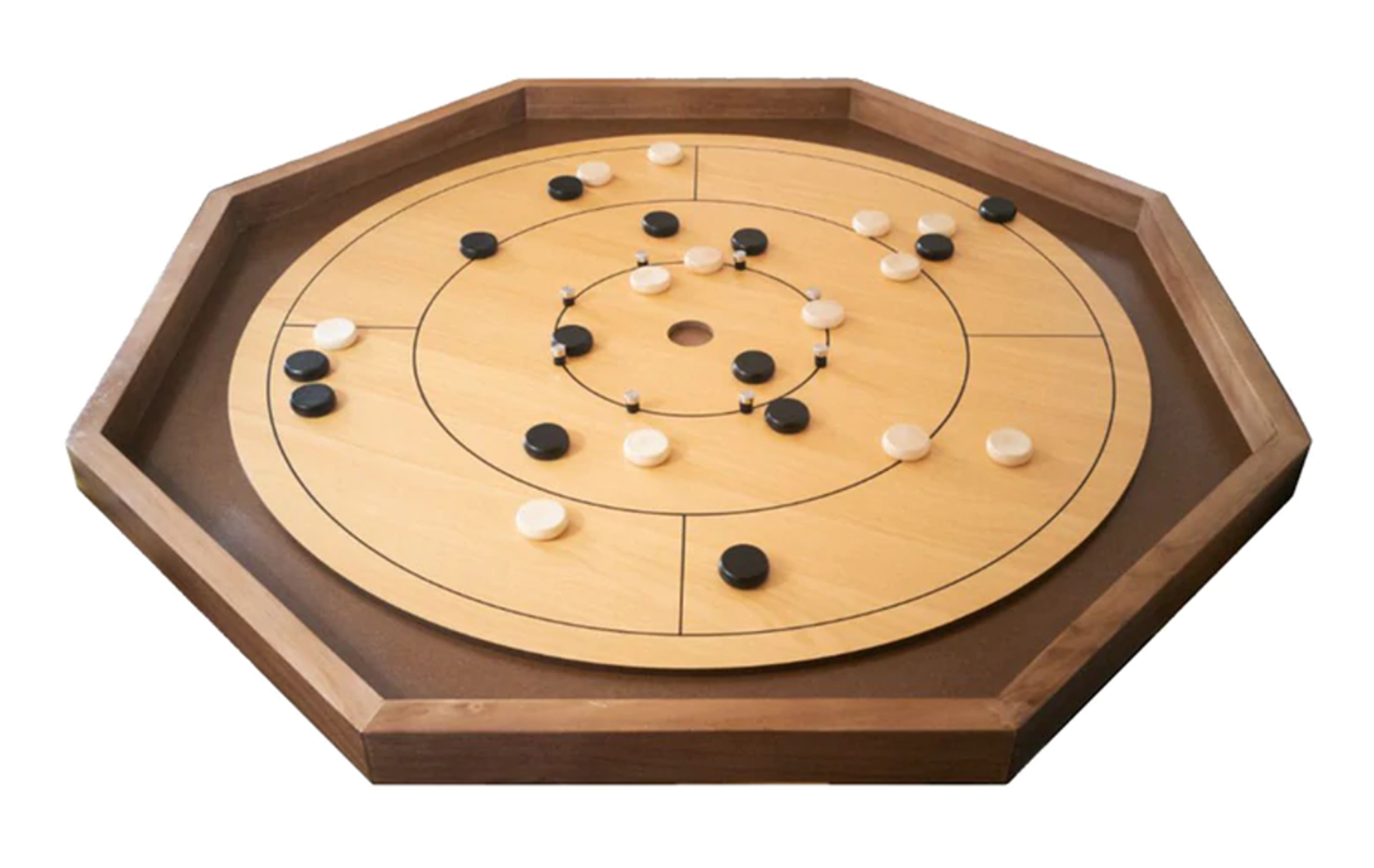
Being required to hit an opponent’s disc ensures that every turn your opponent takes will have a direct influence on your standing and your next move.
So what about cooperative games?
Cooperative Games
Forbidden Island
The island is sinking - get the treasure and get off the island before it’s too late. You can play this with 4 players, but there’s usually always one obvious next thing to do, so 3 of the 4 players aren’t needed. You could just as well play this alone.
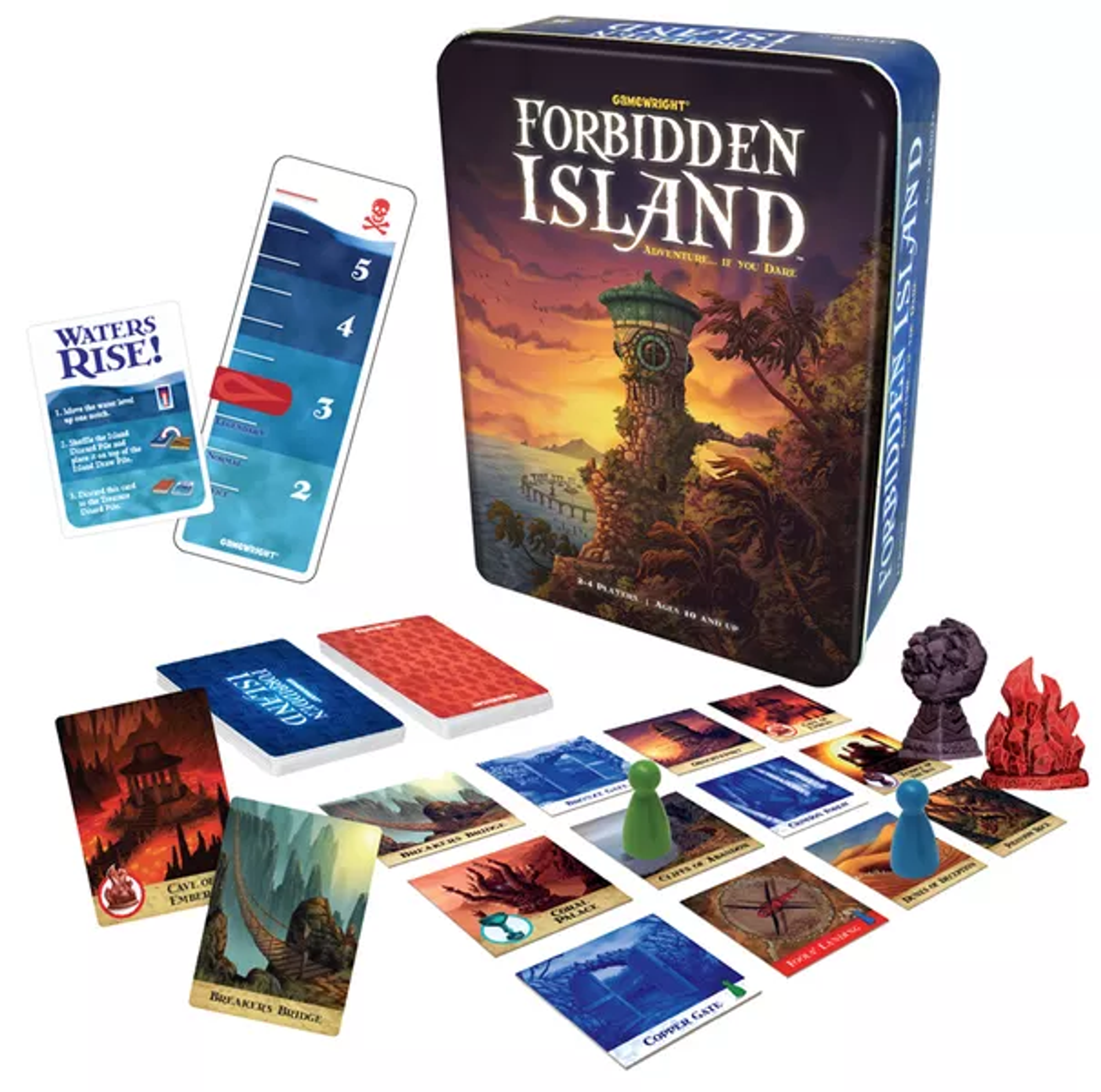
Gloomhaven
Here multiple players matter a bit more. You play the game over many scenarios with choose-your-own-adventure bits mixed in. The players level up their characters and choose new cards to build up their decks. It’s better, and it’s fun if everyone just focuses on their own character and discussions stick to what should be done, not what exact cards everyone should use when.
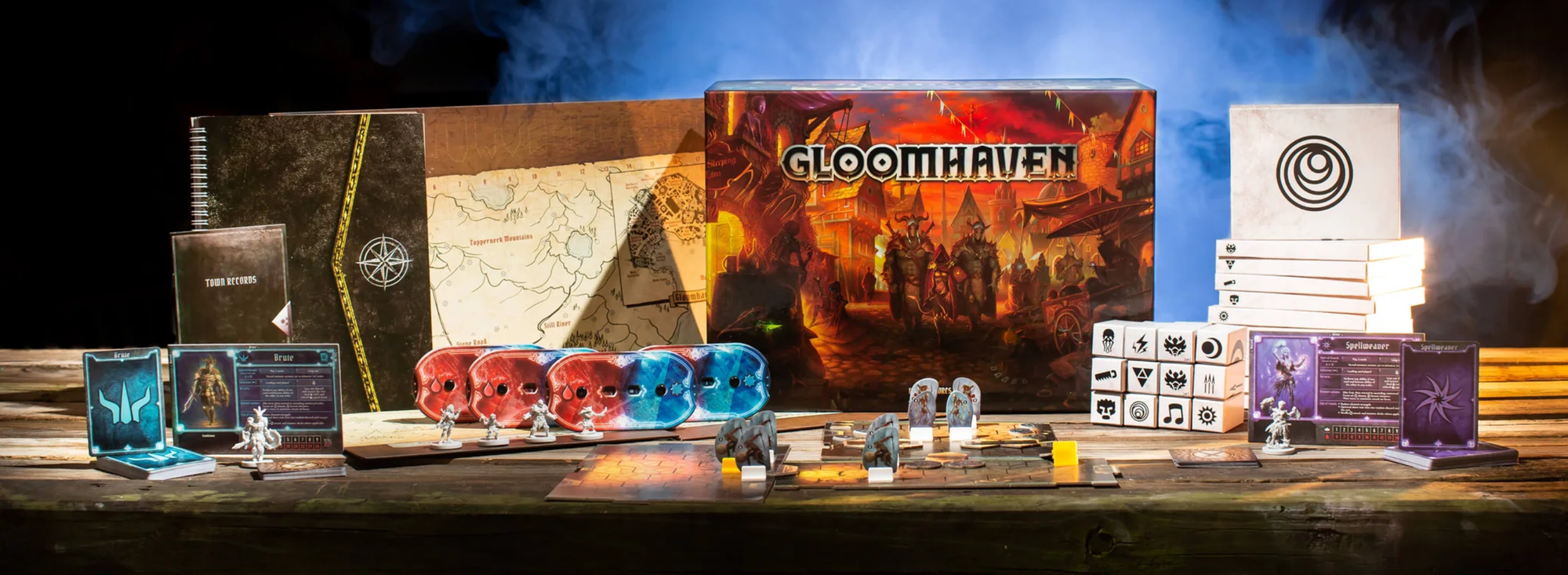
But still - you can just as well play Gloomhaven alone. It’s still going to be fun and you’ll miss out on the social aspect of adventuring with friends, but the game itself is not going to play out vastly different.
The characters in the game have different play styles (different equipment, skills, etc.), but I’d say there’s not a lot of opportunity to bring your own play style to your character other than choosing some equipment and upgrades.

Me playing a Brute will probably be very similar to someone else playing that same Brute. And that’s fine. It’s an adventure that these characters go on together and it doesn’t matter so much who plays which character. The only difference might be in how well a player manages to play to the strengths of their chosen character.
Some games even embrace this: in Kingdom Death Monster you have a rooster of Survivors and you can bring four of them on a hunt. But it doesn’t really matter who plays which one and you can easily play each session with a different group of friends, or even solo.
One addition in Gloomhaven that tries to make things interesting are “Hidden Objectives” - each player gets one and tries to fulfil it during the scenario, but they’re not allowed to talk about it. This adds a great little bit of unpredictability to the game. But it also feels tacked on.
Nemesis
Nemesis takes Hidden Objectives to the next level.
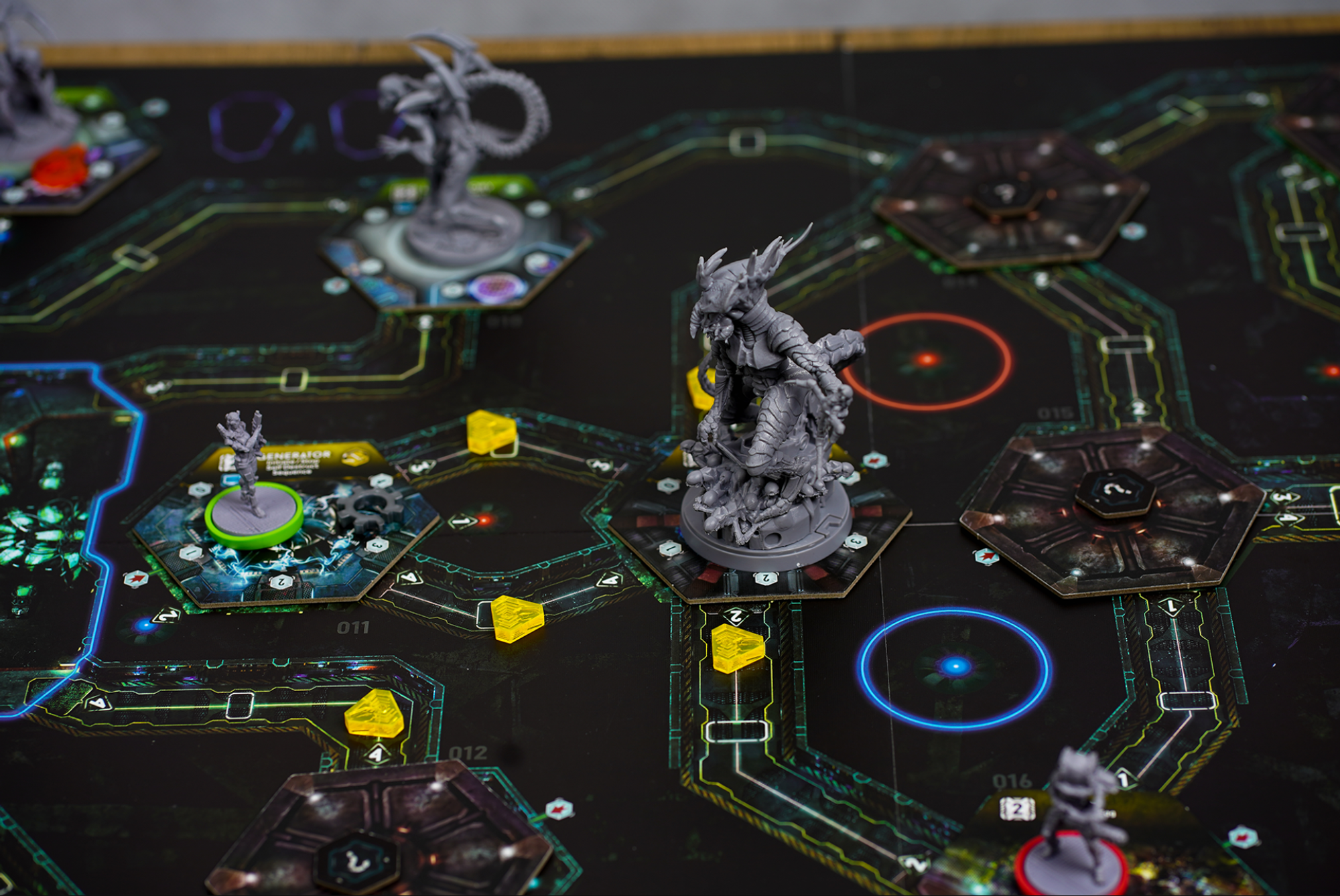
In principle all players are cooperating and everyone helps together to fight the Aliens and get out of the Spaceship alive. But everyone has a hidden objective, and some of them require you to turn on other players. This would not work in a multi-scenario campaign game, but it works great for Nemesis! Although it might pose a threat to the continuation of your IRL friendships…
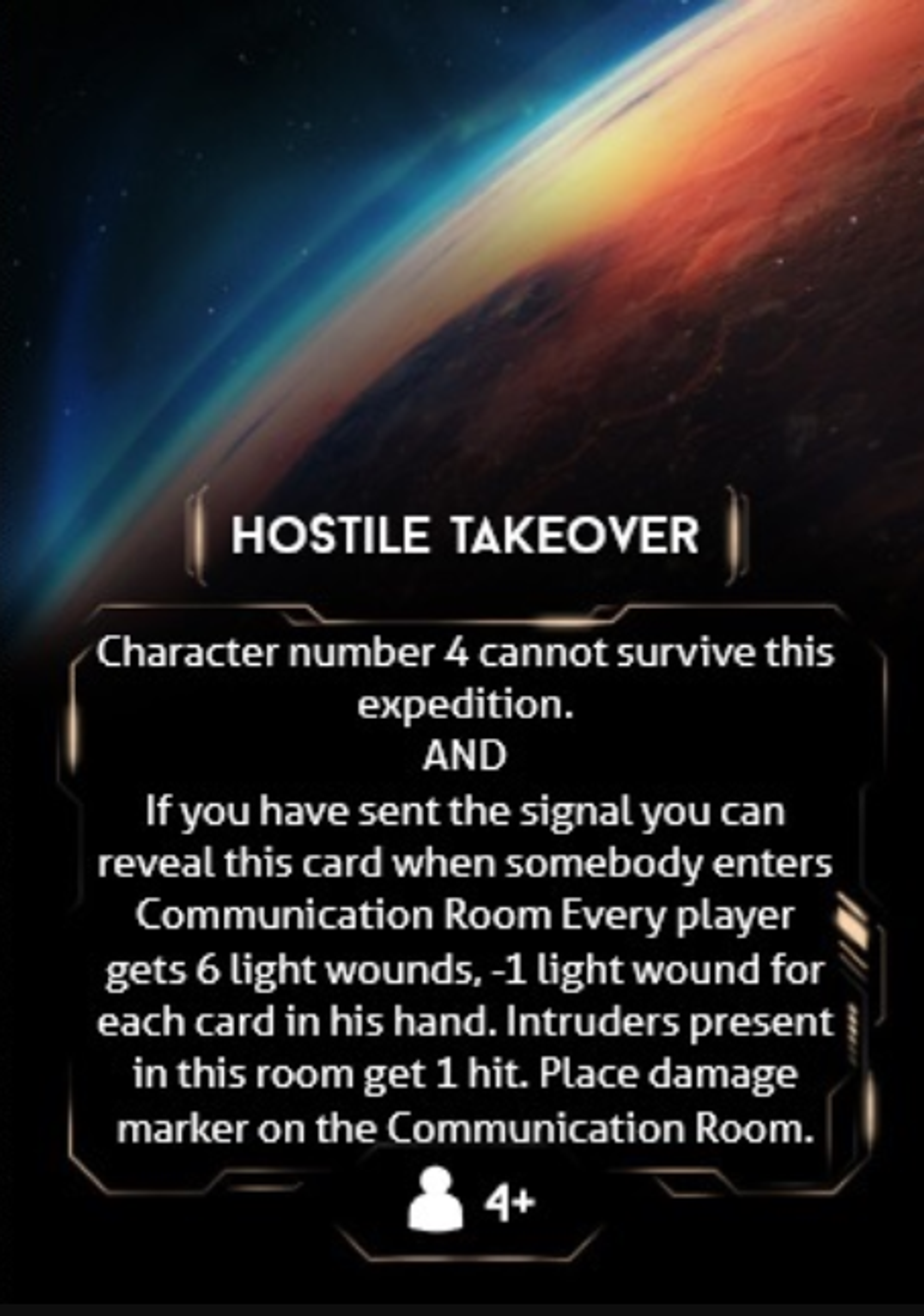
Arkham Horror - The Card Game
The Arkham Horror LCG amplifies the necessity for multiple players by throwing endless amounts of difficulties at you. The characters are designed in such a way that no single one of them can do it alone. (You can try and play “true solo”, so one player with only one character, but it’s extremely hard - believe me)
You need multiple characters to cover all your bases and the ever-increasing card pool has made deck-building its own interesting challenge to master. Additionally it ensures that no player can easily know it all. (By the way: This is the same with Magic the Gathering and other collectible card games - they allow for a personal touch by giving the players a huge amount of cards so they can develop their own style through deck-building)

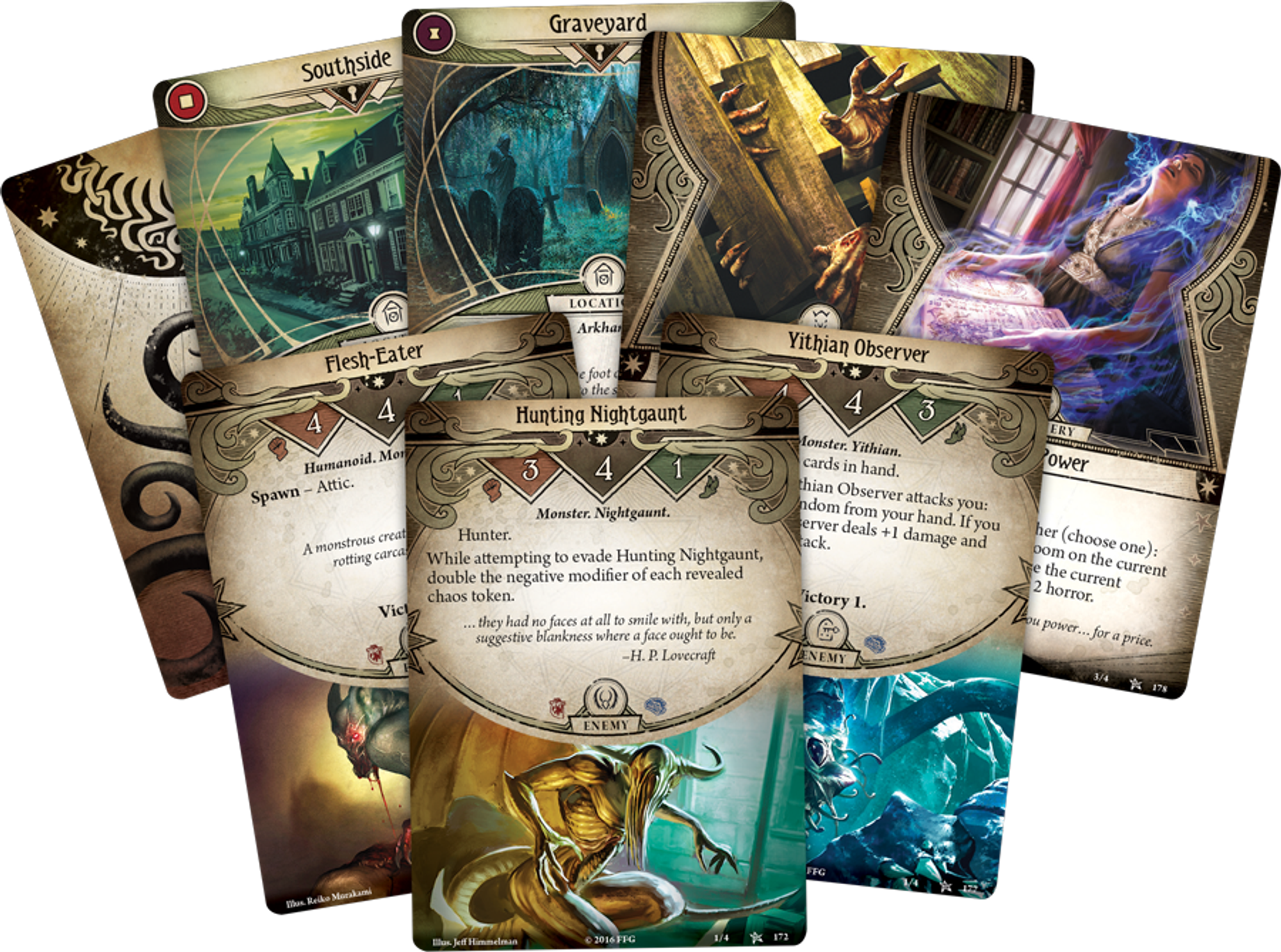
During the game you constantly need to manage the threats coming from the encounter deck, manage (or try and avoid) the threats posed by the enemies in play, manage your resources and equipment, manage your sanity and health, and at the same time find clues and advance the story. Even your own deck includes Weakness cards that usually come up at the most inopportune of times. You simply don’t have time to worry about what specific cards other players should play - you’re busy keeping yourself alive and moving forward and you just hope the others have got their part under control as well…
Conclusions
How do we make multiple players matter?
- Other players’ turns have a direct impact on your game
- Other players change the circumstances that you have to deal with on your turn
- Different skills for each player character - no one is powerful enough to do it alone
When does it matter who you’re playing with?
- The game offers enough possibilities so that player choices and player style matter
- Skill-based gameplay (dexterity, knowledge, brainpower)
In closing: I’m not saying that every game should strive to do this. Cascadia is a perfectly fun game - and its style of gameplay is especially well suited for playing with kids of different ages (where you want to avoid the bigger ones destroying the smaller ones), it’s just not a game where multiplayer matters.
Please feel free to leave your thoughts and game recommendations in the comments below or talk to me on Mastodon! 👍